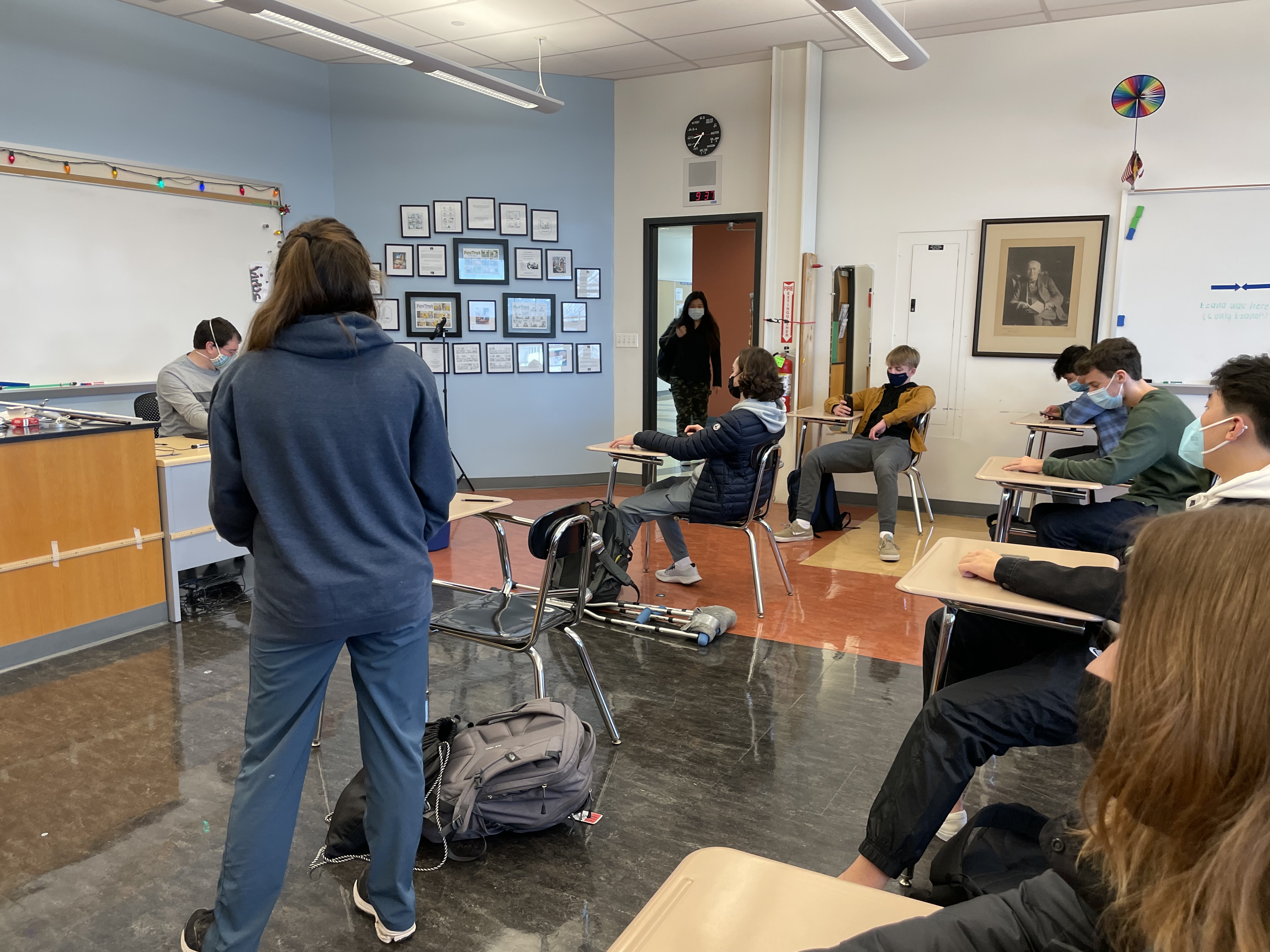Rohith Tsundupalli ’24
The 2020-2021 academic school year, which began on September 1, 2020, will extend through June 4, 2021, due to the pandemic and the elimination of May term. This unusually long school year will force students and teachers to adapt to a prolonged learning plan and a postponed summer.

Photo courtesy of the Ashley Kennedy ’20
During the summer of 2020, Episcopal worked on a plan to move learning from a virtual to an in-person environment. Instituting necessary guidelines and restrictions, the school chose to start the year virtually – a week earlier than planned – to plan for future transitions between in-person and virtual learning. Students and teachers alike have speculated other reasons why school started early; Gautam Ketkar ‘24, believes it was because “students did not learn well and were not focused [when] on the online platform the previous year.” Elizabeth Spear, a Classics teacher, adds, “I think that [creating extra time for adjustment] is just a necessary part of teaching during the COVID era. I think it is just how things have to be.”
In addition to starting early, May Term, a course designed to allow students to explore unique subjects, was cancelled due to the pandemic, creating a two week void at the end of the year.
On the subject of replacing May term with extra class time, Letts says, “It depends on how you view the back end of the year. [Students] would have still been here, but in a perfect world students would be on May term. I would much rather [students] have the opportunity to do a May Term program, to enjoy it. I think that adding more days to the school year is definitely valuable but not ideal.”
Even though the extra days may allow for unique learning opportunities and different methods of teaching, students are skeptical whether that will actually happen. Ketkar thinks that “we will spend the extra days doing more learning as usual.” He continues, “I would prefer just a light review of material because a usual class will make the last days extremely stressful in addition to final exams. Extra days would be a negative personally. However, because the extra days will be before exams, it would be a positive if we got to prepare for our exams in class.”
On a similar note, Jack Crowley ‘24 states that “these days missed by external factors would have impacted the school year by delaying teachers from completing all necessary material/projects/tests.” He added that “this is a positive, because with these extra days, it would give students an opportunity to take a step back and relax from all the stress of school work while still being able to complete all of the material.”
Some teachers, however, are finding the extended year taxing. “There is a real potential for burnout with teachers doing as much as they are,” Spear explains. “Especially those with spouses at work, with kids, managing that can also be very complicated as well.”
With the extra days causing more stress for teachers, Letts has been continually working with teachers to help them adjust. “We have already had conversations about learning plans so I can appreciate that for them. I cannot say enough about how amazing the faculty have been. Think about those teachers who have had to change on the fly, who had to rethink how to juggle the material along with students virtually and in-class. The faculty will do whatever it takes to do the best for their students.”